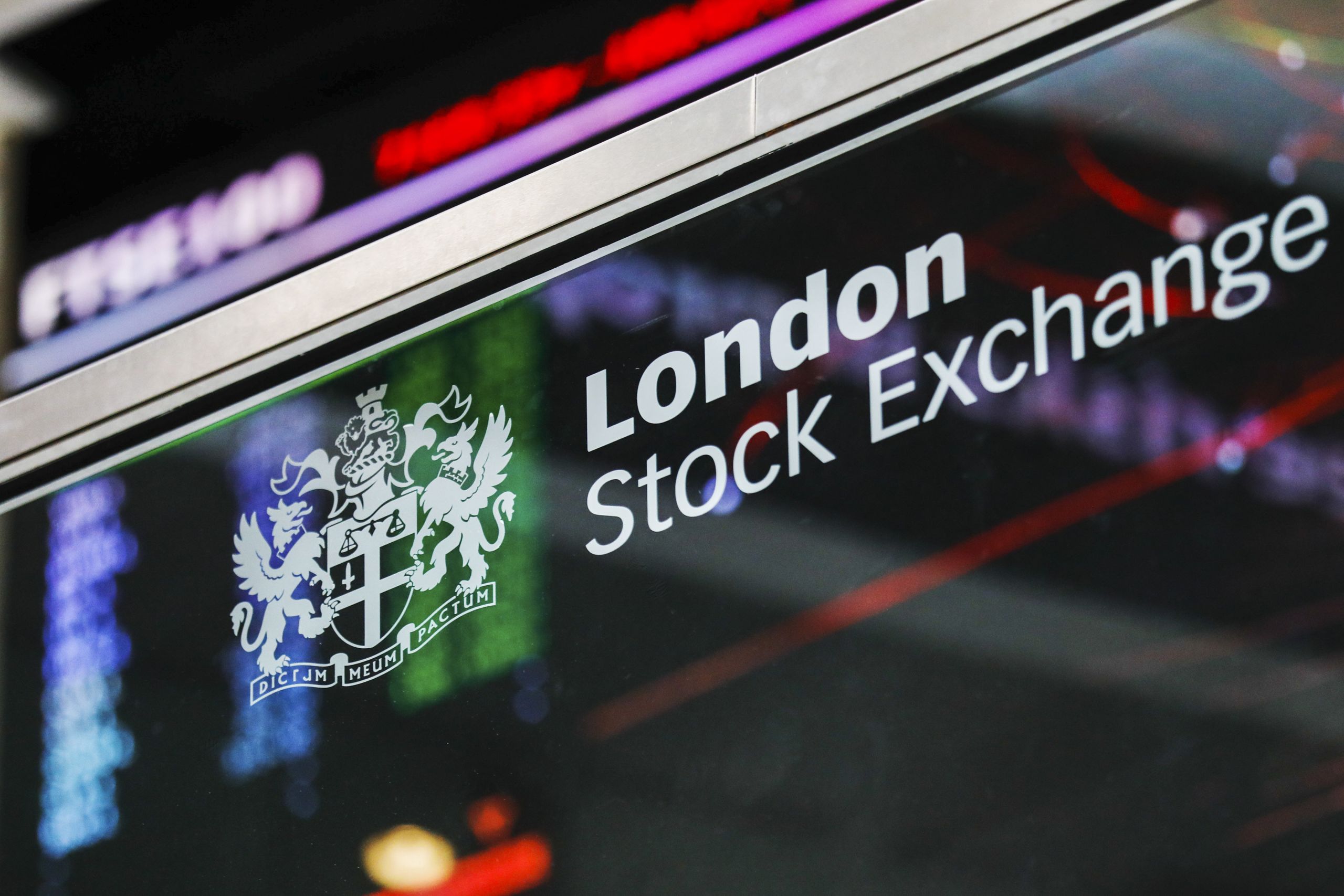The impact of Brexit and geopolitical risk
How advisers can help clients manage risk amid increasing geopolitical tensions and Brexit fears.


The one topic of conversation on most people's lips is the political situation in the UK.
Brexit has become such a toxic topic that it promises to bring any convival conversation to a sudden end.
But with the prospect of a no-deal Brexit at the end of October, everyone is having to face up to the consequences, even though it is unclear where we will be next week, let alone in a month's time
This makes planning for uncertainty all the more challenging.
As our poll shows, the majority of clients are worried about a no-deal Brexit.
What will happen to their investments, many of which might be focused on the UK.
Sterling has weakened considerably since the Brexit referendum, and this has benefited FTSE 100 companies who get much of their earnings from overseas.
But the same cannot be said of small UK businesses.
In this report we look at the issue of political uncertainty created by Brexit and what it means for investors.
More than half of clients fear a no-deal Brexit
More than half of clients are worried about a no deal Brexit, according to the latest FTAdviser Talking Point poll.
The poll, pitched just over a week ago, asked the following question: “Are your clients worried about a no deal Brexit?”

More than one in two (59 per cent clients) answered that they are worried by a no-deal Brexit.
Almost one third (33 per cent) clients said they are not worried as they are diversified.
Only 7 per cent of advisers believed that there will be a deal.
Four per cent of advisers said they are not worried as their clients do not have UK assets.
Alex Sumner, Portfolio Manager at Blackfinch, said: “One fact that has proved consistent through time is that stock markets do not like uncertainty; markets tend to react negatively in these situations.”
He added: “A lot of clients may also be concerned about the value of their homes, and the security of their jobs on top of being worried about their stock market investments."
A hard Brexit would have a major impact on the UK economy and financial markets, mainly the pound sterling and gilts, with the pound and gilt yields falling in response to a hard Brexit, so it is right for clients to be concerned
Political uncertainty due to UK’s looming departure of the EU, have increased in recent weeks.
UK Prime Minister Boris Johnson had pledged to leave the EU block by October 31, “with or without a deal.”
But on September 9, the Queen gave royal assent to legislation paving the way for the PM to seek a delay to 31 January 2020 unless a deal - or a no-deal exit - is approved by MPs by 19 October.
But Ricky Chan, chartered financial planner and director at IFS Wealth and Pensions took a neutral view on the risks posed by a no deal Brexit.
“Brexit should not be viewed as an isolated event because there are other equally important events/issues around the world that could impact an investment portfolio.”
Mr Chan added: “Those clients who are very concerned with Brexit could look to reduce their exposure to UK equities, but I would not avoid investments in our domestic economy because it has advantages of being denominated in Sterling and is generally fairly politically stable.”
David Zahn, head of European fixed income at Franklin Templeton, said: “A client’s currency and fixed income allocation can best help them in a no deal Brexit with gilts and non-sterling assets providing a hedge.”



How advisers can navigate geopolitical risk
Words: David Baxter
Images: Fotoware

House View: measuring the market impact of geopolitics
Geopolitical risk is on the rise and investors will increasingly need to take it into account in the coming years.
Our analysis looks at how it can impact portfolios and what investors can do about it in terms of strategy.
Investors will have to grapple with rising geopolitical risk in the coming years.
It is one of the disruptions that we think will lead to greater market volatility, as we discussed in our recent Inescapable investment truths for the decade ahead report.
What is geopolitical risk and how can you quantify it?
Geopolitical risk can refer to a wide range of issues; from military conflict to climate change and Brexit.
We look at it, as the relationship between nations at a political, economic or military level.
The risk occurs when there is a threat to the normal relationship between countries or regions.
One way of measuring it is the Geopolitical Risk Index (GPR), created by economists from the Federal Reserve (Fed).
The index reflects automated text search results of the electronic archives of 11 national and international newspapers.
It captures the number of mentions of key words, such as “military tensions”, “wars” and “terrorist threats”.
Chart 1 shows how the GPR index has fluctuated since 1985

How uncertainty impacts economies
Geopolitical risk creates uncertainty. This weighs on economies and financial markets as decision-makers hold off from making major commitments.
Firms delay investment decisions or new hires. Consumers delay spending on big-ticket items such as cars or houses.
Financial investors delay their decisions as they try to assess the economic or political impact.
The creators of the GPR – Fed economists Caldara and Iacoviello – found that significant increases in the index result in weaker economic activity and lower equity market returns.
Industrial production, employment and trade are all hit, with the adverse effect persisting for a year after the initial shock.
How does it affect markets?
Geopolitical risks trigger increased risk aversion among investors.
They negatively impact stock market returns in all advanced economies, while two-year US Treasury yields decline.
Capital flows were found to be affected too, with lower flows to emerging markets, but higher flows to developed markets.
Consistent with the downturn in economic activity, the oil price was found to weaken in response to increased geopolitical risk.
The analysis found that economic activity and financial markets were more affected by geopolitical threats than by actual events (such as the start of wars or imposition of sanctions).
Threats tend to increase uncertainty and downside risks, while actual events tend to resolve uncertainty and prompt protective policy responses.
This finding reinforces the stock market adage to, “buy the rumour, sell the fact”.
Two factors driving geopolitical risk
The rise of China
By the end of the next decade China will have an equivalent weight in global GDP as the US.
This has significant implications for the relationship between the two countries and particularly the attitude of the US toward multi-lateral agreements and institutions.
The rise of populism
Underlying the rise in populism is the stagnation in wages and the increase in inequality in major economies.
Populists have tapped into dissatisfaction through economic nationalism, where economic malaise is blamed on globalisation; particularly imports, outsourcing and immigration.
This supports policies such as protectionism, the withdrawal from trade agreements and restrictions on immigration.
Clearly these policies will increase political risk as countries renegotiate their alliances and become less connected and dependent on each other.
How do markets react during periods of heightened geopolitical risk?
As we mentioned, geopolitical tensions can cause lower stock prices and boost returns from perceived safe haven assets.
Table 1 shows precisely this effect during three major conflicts over the past 30 years.
It should be noted that in each of these examples, equities initially fell as markets assessed risk, but typically recovered strongly within a few months.

Our analysis of how “safe” and “risky” assets behave
We looked in detail at the interaction between geopolitical risk and market behaviour; analysing returns of different asset classes over periods of heightened geopolitical tensions.
Our analysis suggests that investors should take into account geopolitical risk when making tactical allocation decisions, as investing in safe haven assets as soon as geopolitical tensions rise, delivers better risk-adjusted returns.
We constructed a safe and a risky portfolio and compared their returns and Sharpe ratios in periods of elevated geopolitical risk as identified by the GPR Index.
Our safe portfolio allocates 50 per cent to the US 10-year benchmark government bond, with the rest equally distributed among gold, Swiss franc and Japanese yen.
Our risky portfolio comprises 50 per cent in the S&P 500, the rest allocated evenly between the MSCI World and MSCI EM Equity indices.
After 2007 we also include a basket of local EM sovereign debt made up of local currency sovereign bonds of Turkey, Brazil, Mexico, Russia and South Africa.
Five periods of geopolitical tensions: how our portfolios performed
We looked at five different periods of heightened geopolitical risk since 1985, which we defined as periods in which the GPR index rose above 100 points.
We do not form any judgement about timing and simply calculate the total return and Sharpe ratio of each portfolio in these periods (for example, from when GPR>100 until GPR<100).

Our analysis shows, that the portfolio of safe haven assets delivers higher risk-adjusted returns than the risky portfolio in four out of the five periods considered, based on the Sharpe ratio.
We also investigated whether a portfolio of 60 per cent risky assets and 40 per cent safe haven assets could outperform the safe portfolio.
Interestingly, our analysis suggests that the diversified portfolio does not offer an improvement on the risk-adjusted performance of the safe portfolio.
What about at times of “extreme” geopolitical risk?
We also investigated if the safe portfolio continues to be the best strategy at points of extreme geopolitical risk, for example, when the GPR index goes above 200.
The results were more mixed, with the risky portfolio delivering the best performance in three of the five periods.
Table 3 shows the return of each portfolio from when the GPR goes above 200 to when it falls back below 100.
Some of these periods are quite short, however, they highlight that risky assets begin to recover before the GPR index falls back to normal.
This might suggest risky assets have discounted a large part of the risk by the time the GPR reaches the extreme level of 200.

Should investors simply ride out geopolitical risk?
Ignoring the risks and remaining invested in risk assets would mean greater volatility, but could leave investors better off in the long run.
For each of the five selected events, we extended the time horizon of our analysis to six months, after the end of geopolitical tensions.
This is to explore what would happen if investors simply stayed invested in risk assets and waited for the uncertainty to lift.
We compared this against a safe portfolio, a 60:40 (stocks: bonds) portfolio and, also, a dynamic portfolio, implementing a safe portfolio as soon as tensions start to rise (GPR>100) and switching to the risky portfolio when they dissipate (GPR<100).
Over the extended time period we found:
The safe portfolio underperforms the risky portfolio in all cases except for 9/11 and the Iraq invasion.
Provided investors could ignore volatility, then the risky portfolio delivers a higher return in four out of the five periods we considered.
The risky portfolio scores better than the safe portfolio in risk-adjusted terms in each of these four periods.
The dynamic portfolio did well, delivering a higher return than the risky portfolio in three out of the five events and higher returns than the safe portfolio, in four out of the five periods.
The dynamic portfolio achieved higher Sharpe ratios than the risky portfolio in three out of the five periods and higher than the safe portfolio in four out the five.
So should investors ignore geopolitics?
We recognise that our analysis is based on a relatively small sample size of five periods which are unlikely to repeat in exactly the same way.
Nonetheless, we find that investors should not ignore geopolitical risk as there are benefits to portfolio performance from switching to safe haven assets when the GPR becomes elevated.
We do not advocate adopting the mechanistic approach used in our analysis, but the work we have done bears out the conclusion that geopolitical risk is important and can be of benefit in active asset allocation.
Keith Wade is chief economist at Schroders








